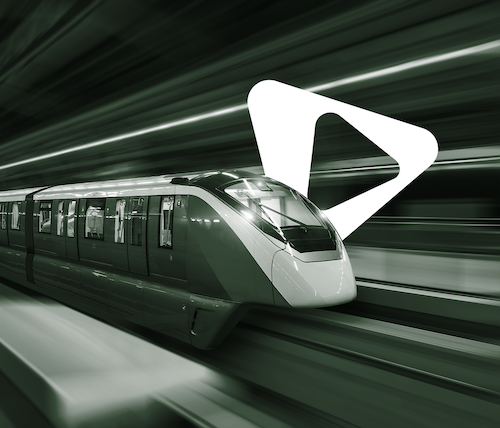The world of logistics is entering a new era—one driven by speed, sustainability, and innovation. As global freight demands continue to rise, traditional transport models are being pushed to their limits. Enter: Hyperloop and High-Speed Rail.
These emerging technologies promise to redefine how freight moves across countries and continents—and for professionals in logistics, that opens a whole new world of opportunity.
At Vidu Group, we’re keeping a close eye on the future. Here’s what these developments mean for the industry—and for the people powering it.
What Are We Talking About?
High-Speed Rail (HSR) is already a reality in many regions, especially across Europe and Asia. While mostly associated with passenger travel, several networks are expanding into freight applications, offering fast, low-emission transport across long distances.
Hyperloop, on the other hand, is still in development—but backed by companies like Virgin Hyperloop and Tesla. Using pressurised pods in vacuum tubes, this system could one day transport cargo at speeds over 600 mph, dramatically reducing shipping times across vast distances.
Why This Matters for Long-Haul Freight
Traditional freight via road, air, or sea has its limits:
- Congestion on motorways and at ports
- Environmental impact
- High fuel and labour costs
- Bottlenecks in time-sensitive supply chains
Hyperloop and HSR offer solutions:
✅ Faster, on-time delivery
✅ Lower emissions and energy use
✅ Less dependency on fuel and road networks
✅ More reliable scheduling
For example, imagine shipping goods from Dubai to Riyadh in under 60 minutes—or moving high-value freight across the UK in a fraction of the time it takes by lorry. These aren’t just pipe dreams—they’re logistical game-changers.
What It Means for Talent in Logistics
As these technologies move from concept to reality, new skill sets will be in demand:
- Infrastructure & operations planning
- AI-powered network optimisation
- High-speed systems maintenance
- Advanced analytics & demand forecasting
- Sustainability & compliance roles
Professionals in sales, business development, and operations will need to understand these systems to design and deliver new logistics solutions.
What It Means for Employers
Forward-thinking logistics companies need to start preparing now—both in infrastructure and talent strategy. That means:
- Hiring people who can operate in tech-forward environments
- Upskilling existing teams on high-speed and clean transport innovations
- Thinking globally about workforce mobility and cross-border capability
At Vidu, we help businesses find the talent ready to lead the next era of logistics—people who can adapt, innovate, and deliver in an increasingly fast-moving world.
Final Thought: The Future Is (Literally) Moving Faster
Hyperloop and high-speed rail aren’t replacing traditional freight overnight—but they are shifting the industry’s direction.
- Smart companies are watching closely.
- Smart candidates are upskilling early.
- And smart recruiters? We’re already connecting the dots.
Looking to hire for future-focused roles in logistics—or build your career in a tech-transformed sector?
Let’s talk.
More articles

